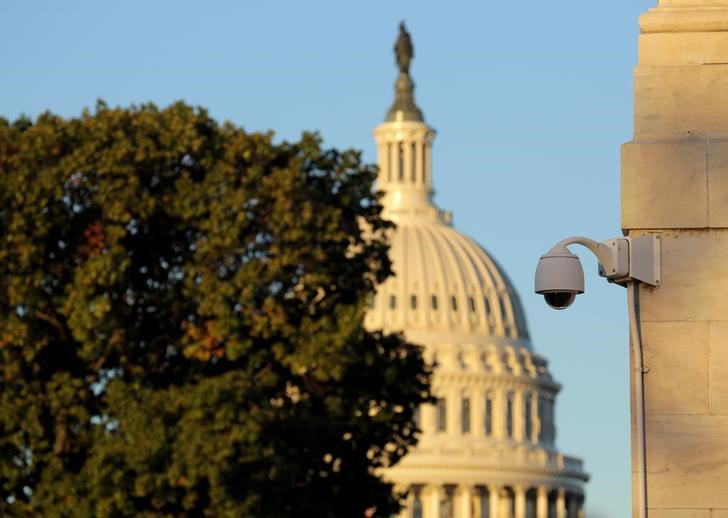Investing.com’s stocks of the week
By Dustin Volz
WASHINGTON (Reuters) - A U.S. congressional committee on Friday asked the Trump administration to disclose an estimate of the number of Americans whose digital communications are incidentally collected under foreign surveillance programs, according to a letter seen by Reuters.
Such an estimate is "crucial as we contemplate reauthorization," of parts of the Foreign Intelligence Surveillance Act that are due to expire at the end of the year, House Judiciary Committee Chairman Bob Goodlatte, a Republican, and John Conyers, the panel's top Democrat, wrote in a letter addressed to Director of National Intelligence Dan Coats.
The request comes as some Republican lawmakers, many of whom have stridently defended U.S. surveillance programs in the past, express sudden interest in considering additional privacy safeguards to how U.S. spy agencies collect and share intelligence that contains information about Americans.
That interest has been sparked by evolving, unsubstantiated assertions that the Obama White House used surveillance powers to improperly spy on the incoming Trump administration.
Privacy advocates have for years demanded that the U.S. government share an estimate of how many Americans are ensnared by programs authorized under a certain part of FISA, known as Section 702, that allows for the collection of vast quantities of internet communications from foreigners believed to be living overseas.
Some experts and lawmakers have said they believe data on millions of Americans could be caught under such surveillance, exposing them to warrantless searches by federal investigators.
"It is clear that Section 702 surveillance programs can and do collect information about U.S. persons, on subjects unrelated to counter-terrorism," wrote Goodlatte and Conyers, who requested a response by April 24. "It is imperative that we understand the size of this impact on U.S. persons as our committee proceeds with the debate on reauthorization."
In a separate letter sent last December to the outgoing Obama administration, members of the House Judiciary Committee said they were given assurances by officials that an estimate would be provided, likely by January of this year.
Richard Ledgett, the deputy director of the National Security Agency, said "yes" when asked by a Reuters reporter last month whether an estimate would be provided before year end. He also said about 20 "vignettes" would be publicly released that show the important national security value of Section 702, which officials have described as among the most important intelligence tools at their disposal.
Section 702 will expire on Dec. 31, 2017, absent congressional action.
